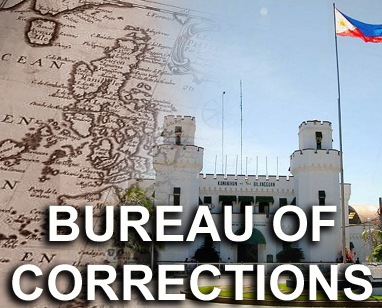
Bilibid Scandal: When The Evil Forces Are Unstoppable
The Bureau of Corrections in the Philippines is one of the most controversial agencies in the country. Yet, its leadership has been trying their best to effect much needed reforms. However, it is said that the more you attempt to hinder the evil forces, the harder they will push their greedy intentions.
Managing The Bureau of Corrections Is Not Easy – Director Gaudencio Pangilinan
The phrase is not an expression of exasperation; it is rather a discovery of a fact. It is not a wailing cry of desperation; but rather a confirmation of something never before accepted as a reality.
And why is it not easy to manage an agency despite all the rules, powers and authorities in its command arsenal? It is in the overall picture of its environment. Unlike plants, unlike animals, unlike any other governmental concern, managing the most dangerous sector of society – the so called insular prisoners projects so much stress to the point that nothing is correct in the scale of administering fairly their community. It is neither hot nor cold; neither here nor there; neither good nor bad; neither proper nor improper. Either an officer is exceptionally a genius person or abnormally intelligent to justify the right way in managing the affairs of prison administration.
The Bureau of Corrections is one such agency one finds at the cross roads of a scandal.
If there is no news that could grab public attention, one can find something in prison worth jolting the hell out of stability. For sure there are numerous instances in the prison community that is worth a moment’s notice. If the mood is something that would require empathy for the down trodden, there are alleged cases to be slapped on prison officials. If the prevailing sentiment is against the offenders, there are incidents that could be divulged against prison denizens. In both instances, the prison administrator’s neck is usually on the line. This is where sensationalism comes, that is where the news item becomes a regular highlighted feature, something that sells the newsprint, something that is projected on television, something one follows up on radio. And the Bureau of Corrections, whether it is in its star to be exposed or not, is always there are as an exciting filling material.
Any administrator worth his salt would find this stark reality as soon as he gets into ground work. NO amount of work ethics can drive the prison community— officers included, into the tailspin of real committed work. Resistance is etched in every corner of the prison camp. Tradition is almost embossed in the granite walls of the community. To reform is like calling to arms as in war. Yet changes must be done. Several prison administrations have dedicated itself in the past only to be waylaid by indifference later. Result: the prison service remained static, recluse and worst, a benchmark for incompetence. And there lies the challenge. Change must occur, innovation must start somewhere. Corrections must regain its real meaning.
The process is not a walk in the park. It is, to borrow today’s lingo, complicated. Change demands sacrifice. While not all improvements result in change, all changes result in improvement. And the prison service is still undecided to fulfill change notwithstanding the enforcement of leadership. Attitude remains the biggest challenge and it must turn into a crusading spirit. It must be guided tour for real change, a clear direction to be reached.
And the first step is having a good grasp of where to go. That explains the significance of the BuCor roadmap. It has to be adopted, embraced, and totally appreciated from the heart.


